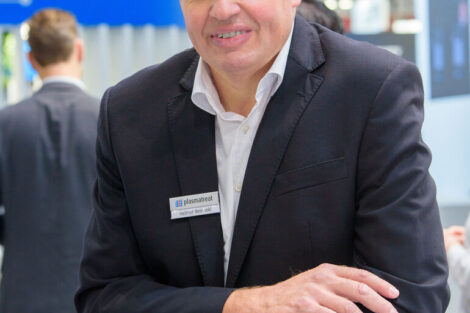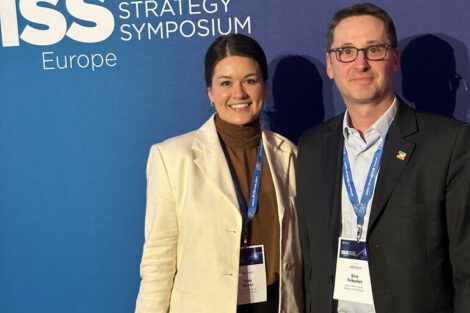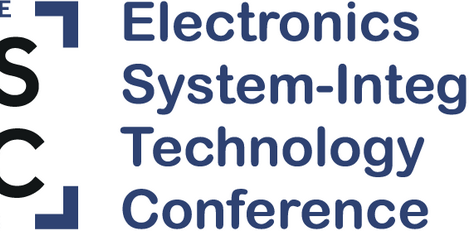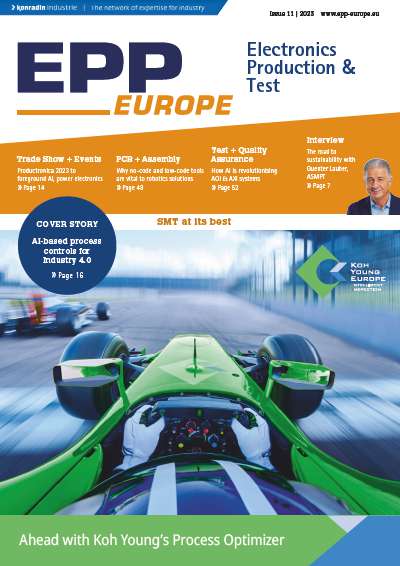In 2007 IPTE looks back on 15 years in the electronics industry. Founded in 1992 by five engineers in Belgium the company currently employs more than 2,000 people in facilities in Europe, the United States and Asia. The company is sub-divided into two divisions: IPTE ‚Factory Automation‘ – a market leader in the supply of production equipment for the electronics industry, and the ‚Contract Manufacturing‘ division, that offers production services to the professional industry. In an interview with EPP Europe, Managing Director Huub Baren, one of the founders of IPTE, talks about his company and his plans.
Mr Baren, what is your background and what were the reasons for founding IPTE?
When I started my own company I was about 50 years old. I had worked at Philips for more than 25 years, on the professional (i.e. non-consumer) side of the electronics business. At that time Philips was no longer interested in the professional side and they sold all their activities. I’d always had a feeling that entrepreneurial issues were very important for me and so I decided to start my own company. I saw an opportunity to start the test automation business and in 1992 I started the company together with four colleagues and five additional persons. It was no management buy out, we just started in competition to Philips. In 1993 we had a turnover of 0.8 million euro, right in the middle of a European recession. But we were lucky in so far as in the following years from 1994 to 2000 we were able to double our revenues every year.
How has your company’s structure developed since that time?
In 1998 we made our first acquisitions. We took over PTS in Fürth, Germany, which was the former engineering department of Grundig. With PTS our automation business was running at about 35 to 40 million euro annually. In 1999 we bought the Belgian company Connect Systems, which is in contract manufacturing. Contract manufacturing is a completely different kind of activity. The idea was to balance out the automation activity. With automation you are in investment goods, in contract manufacturing you are in production of electronics. In an economic downturn consumer goods can dip 10 %, and in an upturn they can be up 10 % or 20 %. But with investment goods we are talking about 50 % down or 50 % up. So the cycle is much sharper. To balance that out, we decided to set up a contract manufacturing activity, what is much more stable. When we bought Connect Systems, it was running at about 20 million euro a year. In 2000 we had a total turnover for both activities of 108 million euro, little bit less in contract manufacturing, a little bit more in the automation side.
Things slowed down quite a bit after that, didn’t they?
This brought us to 2000, which was also the year we listed on the stock exchange. From 2001 to 2004 we had a quite severe recession. This made it difficult to remain profitable, and in fact we ran up a substantial loss. But we pulled through. And in the past two or three years, we again managed to increase our sales and move back into the black. Last year we were up to 138 million euro with a profit of close on 2 million net.
Let’s talk about the current year. In the second quarter of 2007 you posted a net profit of 2.80 million euro on sales of 66.2 million, up 90 % compared with the 2nd quarter of 2006. How do you explain this success?
This year the situation is influenced by the acquisition of the production part of the Belgium company Barco, which is busy in all kinds of vision products. They didn’t want to execute the production part anymore and were looking for a partner to take it over. That we did from January 1st 2007, but the negotiations had taken place 8 months before. Thanks to this acquisition we achieved total sales for the first half of 2007 of 128 million euro with a net profit of 4 million. The projection for this year is for sales of 230 to 240 million euro turnover, up around 90 % on last year. This is partly due to the acquisition and partly also to the expansion of our normal activity by about 25 to 30 %.
The market is quite good at the moment. Not only in Europe, but also in Asia there is an enormous boom in electronics, reflecting the situation in Europe and in the Americas. This we saw coming. I believe that we can realize a net profit of at least 7 million euro this year. If you compare this with the 1.9 million euro in 2006, it is a rather good increase.
What are your intentions for the European operation?
I would like to split the question into two parts: contract manufacturing and factory automation. Both have very much separate policies.
I start with contract manufacturing. We are targeted right now on the Benelux contract manufacturing situation, especially in Belgium, because originally Connect Systems is a Belgium company. We are intending to reinforce the operations in the Netherlands. We also made an acquisition in Germany some years ago. This is Connectronics in Frickenhausen (close to Stuttgart). In the long run I would like to reinforce the German operation in contract manufacturing. My wish is to have an operation somewhere in the direction of 100 million euro in Germany. And that can only be done by a good acquisition.
How do you organize the operations?
In Contract Manufacturing we have a front end and a back end situation. The front end is always where the customers are, where the demand is and where we reflect our capability by engineering some printed circuit boards etc. for the customers. The back end is where most of the manufacturing is actually done. And in our business we have what we call free back end situations, that is the customer is pretty much unconcerned where we manufacture, it is the price and quality that count. For larger series we use our facilities in the Czech Republic, Slovakia and Romania. Particularly in Romania, where we are building a new factory in Oradea for 1000 people.
And what about Factory Automation?
In Factory Automation the situation is a little bit different. Factory automation is organised to be local. That means we have a facility, for instance, in Heroldsberg (close to Nuremberg, Germany) to cover the situation in Germany, Austria and Switzerland. We have the two factories in France, Prodel for automation north of Paris and Elec and Antest for test engineering in Normandy. We also have our factory and headquarters in Genk, Belgium.
With factory automation we are concentrating on three activities. These are test engineering (around 40 % of sales), project engineering, where we engineer complete production lines (around 40 %), and standard products and systems, mainly for depaneling, odd-component, laser marking and conveying products (around 20 %). Our goal for 2007 is growth of 15 %, with sales spread evenly over the three above-mentioned activities. Our factory automation activities were originally directed mainly at OEMs (original equipment manufacturers) operating in the hyper-competitive consumer electronics industry. Today we are serving primarily the automotive electronics market and in part also the industrial market.
What is your growth policy for Factory Automation?
We would like to cover certain areas better. One of these is Iberia: Portugal and Spain. If you look at Europe you see that most of the car factories move to East and South of Europe. For that reason we started our company in Portugal. At the moment we have almost about 25 persons there but I hope it will be extended to 50 or 100 people. My philosophy for factory automation is that there should be between 50 to 150 persons maximum in each of our plants. The other side of the car factories are going to Eastern Europe, like the Czech Republic and Slovakia, which is where Germany’s car factories will be placed in the future. So we follow them and that’s the reason why we are keen to extend the automation activity in Oradea.
Then there is the northern part of Europe. That is in principle Finland and Sweden. There we have two important customers: Nokia and Ericsson. We are thinking how to reinforce our sales and service activity there – so far the countries.
Also we want to intensify the relationship with big customers like Siemens, Bosch, Nokia and Philips, to get to a sort of partnership in automation. We are present in Europe, China, Singapore and in North America. This should be of interest to these big international companies. Not too many have their own engineering facilities, in particular outside their home turf.
Do you have engineering facilities in China?
Yes, we have 50 well trained employees in Shanghai and we are looking to increase this to 100 persons. We have a sales and service office in Singapore and one in Shenzhen (close to Hong Kong). Singapore is important for Singapore, Malaysia, Thailand and Vietnam. We are not yet present in India. Maybe in the future.
And what about the next 15 years?
The continuation of the company is a very important issue for me, it is important for my customers, for my employees and it is also important for my shareholders – I am one of them. The big challenge for me in the next five years or so is to put the next generation of management into place. We have a lot of good younger people coming up in the different countries and the situation is looking much more attractive for them to become personally and financially committed than it was five years ago. I may then start to take a more back seat position. But not quite yet.
EPP Europe 411
Share:











